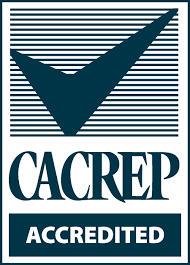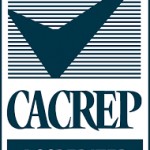
Is your school accredited by the Southern Association of Colleges and Schools Commission on Colleges (SACSCOC) with CACREP approved programs?
In order to ensure a smooth transition towards licensure or certification, many Commissions on Collegiate Education now offers programs accredited by the Council for Accreditation of Counseling and Related Educational Programs (CACREP). Missouri State’s Counseling Program for example is accredited by the Council for Accreditation of Counseling and Related Educational Programs (CACREP), a specialized accrediting body that utilizes rigorous scrutiny. CACREP standards require that the program objectives “reflect current knowledge and projected needs concerning counseling practice in a multicultural and pluralistic society,” and that students develop “multicultural counseling competencies” and learn about “the unique needs and characteristics of multicultural and diverse populations.”
Anti-Gay Counseling Student Sues University Over His Refusal To Follow Professional Ethics
A former student in Missouri State University’s counseling master’s program has filed a federal lawsuit against the school, claiming that he was wrongfully dismissed from the program because of his religious beliefs. The belief that he felt was violated was his unwillingness to counsel same-sex couples.
Andrew Cash, represented by the Thomas More Society (a social conservative law firm), claims that by not allowing him to progress in the degree program, he is unable to be a counselor and suffers “daily emotional grief and pain.” The complaint includes seven causes of action, including various violations of his freedoms of expression and religion and his right to equal protection and due process under the law.
According to the suit, Cash first enrolled in the program in 2007 and was a competent student. In 2011, when it was time for him to start amassing clinical hours, he secured an internship with the Springfield Marriage and Family Institute (SMFI), a Christian family counseling organization. For a class presentation, Cash presented on Christian counseling and SMFI’s approach to it — even though, as the suit admits, students are generally expected to present on something outside their internship site.
During the presentation, a student asked W.K. Boyce, executive director of SMFI, if he counsels gay couples. As the complaint explains, he responded that “he would counsel gay persons as individuals, but not as couples, because of his religious beliefs, but would refer the couple for counseling to other counselors he knew who did not share his religious views.”
Prompting this revelation, the department heads decided to no longer utilize SMFI as an approved internship site, informing Cash he could no longer continue his internship there. They also asked him if he shared those views, which he confirmed, acknowledging that he would counsel gay people individually on issues like depression and anxiety, but would not counsel a same-sex couple. This, he was informed, was a violation of the American Counseling Association’s code of ethics.
The university required him to undergo some remediation work before applying for a new internship, which he completed. In his application, however, he insisted that the hours he accrued at SMFI (51 of the required 240 clinical hours) still be counted toward his requirements, defending the work that clinic does. This, the department concluded, contradicted the progress of his remediation and he was not allowed to proceed.
Cash appealed that decision, and the appeals process lasted some two years — which the complaint seems to gloss over — before he was informed in November of 2014 that he was being removed from the program.
“Plaintiff’s experience at MSU has been devastating, crushing, and tormenting,” the suit claims, “culminating in his termination from the program — all because he interned with a Christian organization and expressed his religious beliefs on a hypothetical question about counseling a gay couple on relationship issues.”
He was “targeted and punished for expressing his Christian worldview” because “he did not give the ‘correct’ answer” about providing services to a “gay/homosexual couple.”
Calling the experience “a living nightmare,” the suit also alleges that Cash “ has lost countless hours of sleep, and lives with gut-wrenching thoughts and fears about his future and ability to enter the counseling profession, and experiences of emotional grief, anxiety and panic, each day since April of 2011.”
The problem with Cash’s complaint is that his professed intentions as a counselor do, in fact, violate the standards of the American Counseling Association, the very standards that the counseling program must uphold to maintain its accreditation.
Missouri State’s Counseling Program is accredited by the Council for Accreditation of Counseling and Related Educational Programs (CACREP), a specialized accrediting body that utilizes rigorous scrutiny. CACREP standards require that the program objectives “reflect current knowledge and projected needs concerning counseling practice in a multicultural and pluralistic society,” and that students develop “multicultural counseling competencies” and learn about “the unique needs and characteristics of multicultural and diverse populations.”
“Multicultural,” according to the standards, includes diversity in terms of sexual orientation and religious and spiritual beliefs.
The CACREP standards also require that counseling students “abide by the ethics of the counseling profession.” As the suit acknowledges, the American Counseling Association’s code of ethics requires counselors not to discriminate on the basis of sexual orientation. Specifically:
Counselors do not condone or engage in discrimination against prospective or current clients, students, employees, supervisees, or research participants based on age, culture, disability, ethnicity, race, religion/spirituality, gender, gender identity, sexual orientation, marital/partnership status, language preference, socioeconomic status, immigration status, or any basis proscribed by law. The experience has been a living nightmare for Plaintiff, who has lost countless hours of sleep, and lives with gut-wrenching thoughts and fears about his future and ability to enter the counseling profession, and experiences of emotional grief, anxiety and panic, each day since April of 2011.
Essentially, Cash is insisting he be allowed to receive a degree despite blatantly promising to violate the very standards that dictate the legitimacy of that degree. The issue of whether counseling students should be allowed to discriminate in violation of a program’s standards has previously divided courts, but no precedent was set that will dictate how the case will unfold in Missouri.
In 2012, the Sixth Circuit ruled against Eastern Michigan University for expelling student Julea Ward under almost identical circumstances. In that case, Ward was asked to counsel a gay client, but she insisted that she could not provide that counseling and asked for a referral. Because the school did not have a “no referral” policy that it could enforce, the Court ruled that the expulsion could be considered “hostility toward her speech and faith.” The university eventually settled and removed the expulsion from Ward’s record.
That same year, however, a federal judge in Georgia ruled againstcounseling student Jennifer Keeton, who was expelled from Augusta State University for insisting that homosexuality is an “immoral personal choice” and refusing to affirm a gay client’s behavior as “right or healthy.” The judge in that case found that the ethical standards “make clear that the counselor’s professional environs are not intended to be a crucible for counselors to test metaphysical or moral propositions.”
This specific issue of anti-LGBT counselors has prompted states to consider legislation protecting those who would seek to discriminate. The Michigan House passed a bill in 2012 that was actually called the “Julea Ward Freedom Of Conscience Act,” but it didn’t ever become law.
Just this week, however, Tennessee Gov. Bill Haslam (R) signed into law HB 1840, which allows therapists and counselors to refuse treatment related to “goals, outcomes, or behaviors that conflict with a sincerely held religious belief” without penalty from the state. Though it does not specifically mention issues related to LGBT identities, it has widely been decried for enabling discrimination against that community.
So far, only Cash’s side of the story has been told. As the case plays out, more details will likely emerge about his refusal to counsel same-sex couples and his unwillingness to cooperate with the program’s expectations of him.


Comments